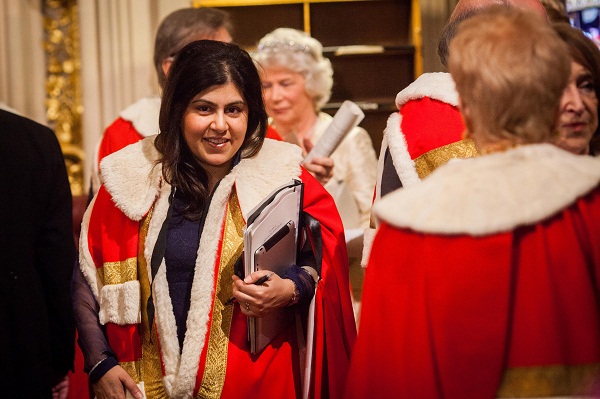You know the story: Baroness Warsi is to be relieved of her duties as co-Chairman of the Conservatives. That at least is the expectation as the reshuffle nears. Warsi clearly expects such an outcome; otherwise she would not have told the Telegraph that she must remain in post if the Tories are to win the next election. She said:
‘If you look at the demographics, at where we need to be at the next election, we need more people in the North voting for us, more of what…I call the white working class. We need more people from urban areas voting for us, more people who are not white and more women…’I play that back and think: ‘I’m a woman, I’m not white, I’m from an urban area, I’m from the North, I’m working class – I kind of fit the bill. All the groups that we’re aiming for are groups that I’m familiar with.’
Now, as Paul Goodman has noted, Warsi’s logic is tortured. If only an Asian woman can appeal to Asian women, it follows that only working class politicians can appeal to working class voters etc. etc. Warsi’s simplistic argument is self-defeating, but one can see and agree with what she is driving at: the Tories benefit from having varied voices in prominent places.
I suspect that Warsi will be of interest to political and social historians. She embodies a revolutionary social change that the Conservative modernisers have been trying to effect for some time: to appeal to the voters Warsi describes above, while also moulding contemporary Britain’s ethnic and religious diversity into a recognisably British monoculture. This is delicate, often counter-productive work and the leadership has made a meal of it so far. This was epitomised by David Cameron’s careful speech on multiculturalism in Munich last year, which contradicted many of Warsi’s pronouncements on the subject. That Baroness Warsi is David Cameron’s political creation makes this all the more ironic, and awkward as the ailing party begins to worry about 2015.
A general rule of English history is that we do not do revolutions. The seminal Tudor historian Geoffrey Elton wrote of Thomas Cromwell, the man who dissolved the monasteries, ‘In eight years he engineered one of the few successful [social] revolutions in English history, and he achieved this without upsetting the body politic.’ Baroness Warsi has only had 2 years as chairman; but she has upset enough of the party to fear demotion. In that event the Tories will look elsewhere for their Cromwell, although it would not preclude Warsi from continuing to serve in Cabinet and lend her hand to the unfinished revolution.






Comments